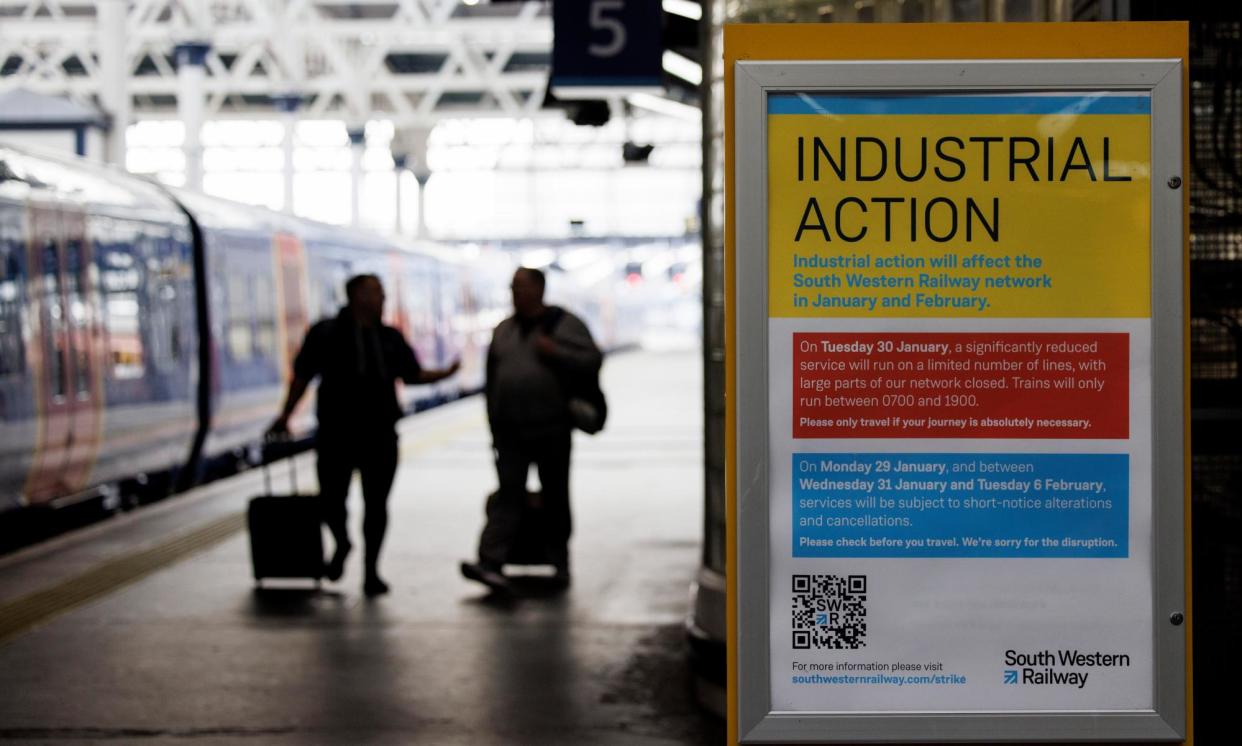Rail strikes restart as Aslef train drivers embark on new action

Rail passengers face a week of disruption as train drivers embark on another round of industrial action on Monday, despite tentative attempts by the industry to restart talks.
Drivers in the Aslef union will strike for 24 hours at each of England’s national train operators over the course of three days from Tuesday until Thursday, while an overtime ban will apply nationwide from Monday until Saturday.
Most operators will not run any trains on their strike days, affecting some cross-border services to Wales and Scotland. The overtime ban will also reduce schedules and severely disrupt some operators who depend on voluntary shifts to run their services.
On Tuesday 7 May, the first wave will affect commuter routes into London, with drivers striking at c2c, Greater Anglia, Great Northern, Thameslink, Southeastern, Southern/Gatwick Express and South Western Railway.
It will be followed on Wednesday by a 24-hour strike at Avanti West Coast, Chiltern Railways, CrossCountry, East Midlands Railway, Great Western Railway and West Midlands Trains; and at LNER, Northern and TransPennine Express on Thursday.
The union said it would continue to strike for an improved pay offer, with some of its members now going five years without a pay rise and the last talks breaking down a year ago.
A hint of movement came when the Rail Delivery Group, representing train operators, emailed Aslef late last week to suggest discussions about a framework for formal talks, which the union said it welcomed.
An RDG spokesperson said it had “written to the Aslef leadership to try and find areas of common ground that will allow us to move to formal negotiations”.
The Aslef general secretary, Mick Whelan, told members he would “explore this avenue in an effort to resolve this dispute”.
The drivers’ union rejected a two-year deal in early 2023 worth 4% annually, but with changes to working conditions attached. In percentage terms, the rise was less than that offered to other parts of the industry.
Speaking before this next set of rolling strikes, Whelan said: “We don’t want to be doing this. Nobody wants to be losing money, but unless we do this, nobody is going to come to the table and talk to us. So we’re left in a position whereby the only way that we can articulate our voice is to take action.”
Aslef members voted overwhelmingly in February to continue industrial action.
Related: Why Labour leapt on board with private open access train providers
Whelan added: “I’m out there talking to my people most nights of the week in branch rooms and elsewhere, and they want to keep going. They want a resolution. And after 22 months, why would you stop? We have to believe there will be an endgame; we have to believe there will be a resolution to this.
“After half a decade without a pay rise, should we stop and go another half a decade without?”
The government has argued that the offer would take the average pay of a train driver to £65,000, but it also demanded “modernisation” and workplace changes as part of the settlement.
Whelan said: “There was no workplace reform. Nobody could explain to me how cutting people’s sick pay makes a railway run quicker, or more resilient, or improves performance. It was a land grab for Ts & Cs [terms and conditions].
“We’ve done 17 pay deals in the last 12 months across the rest of the rail industry,” including in Scotland and Wales, the Elizabeth line, and for freight and open access rail operators. “None of them required any of these changes – this has got nothing to do with running a railway.”
An RDG spokesperson said the strikes would “inflict further damage on an industry that is receiving up to an additional £54m a week in taxpayer cash following the Covid downturn”.
They warned there would be reduced services from Monday, with the overtime ban’s impact varying across the country, and advised passengers to check before travel.
The wave of action is the fourth week of rolling strikes staged by Aslef since December, after it altered its tactics in a dispute that has lasted almost two years.


